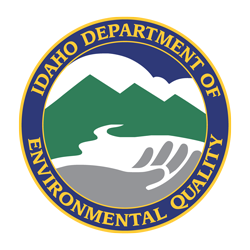Many businesses handle used oil, including service stations, fleet maintenance facilities, and others. Learn more about used oil management requirements below.
Used oil is any oil that has been refined from crude or synthetic oil that has been used and as a result is contaminated by physical or chemical impurities (e.g., lubricants, electrical insulation oil, hydraulic fluid, heat transfer oil, brake fluid, refrigeration oil, grease, or machine cutting oil).
Used oil does not include used oil mixed with hazardous waste (except for specific instances), petroleum and synthetic based-products used as a solvent, antifreeze, wastewater from which the oil has been removed, or oil-contaminated media or debris.
This accordion will not appear on the screen
Used Oil is considered on-specification if it does not exceed any of the following limits:
| Constituent / Property | Maximum Allowable Level (ppm) |
|---|---|
| Arsenic | 5 |
| Cadmium | 2 |
| Chromium | 10 |
| Lead | 100 ppm maximum 100 ̊F |
| Total Halogens | 4,0002 |
Used oil regulations do not apply if used oil is determined to be on-specification. It can be stored, transported, and burned as fuel oil. Analytical and transport records should be maintained to justify this designation. Additional requirements for burning used oil containing polychlorinated biphenyls (PCBs) are found in 40 CFR 761.20(e).
Used oil filters can be recycled for their scrap metal value if the oil is removed. The filters are exempt from the used oil requirements when properly recycled or disposed of:
- Puncture the nonterne-plated filter, anti-drain back valve, or filter dome end.
- Crush or dismantle and hot drain the filter. Hot draining drains the oil filter at near engine-operating temperature and above room temperature (60°F) for at least 12 hours.
- Properly manage used oil collected from filters under the requirements above.
A used oil generator is a business that produces used oil from the maintenance of vehicles and equipment or through commercial or industrial operations (e.g., repair shops, service stations, motor pools, taxi, bus, or delivery fleets, city, state, or county road maintenance fleets and shipyards).
Learn more about used oil generator requirements.
Farmers and Household Do-it-Yourselfers – Farmers who generate an average of 25 gallons per month or less of used oil from vehicles or machinery used on the farm during a calendar year are exempt from the generator regulations.
Household do-it-yourselfers (DIYs) (i.e., individuals who change their vehicle’s oil), are not considered generators.
A facility that accepts used oil collected from DIYs, called a DIY collection center, is subject to regulations. While there are no quantity or time storage limits for DIY used oil collection centers, there may be spill prevention control and countermeasure plan requirements depending on the amount of used oil stored.
A transporter is any person who transports used oil, collects and transports used oil from more than one generator or the owner or operator of any used oil transfer facility. A used oil transfer facility includes transportation-related facilities such as loading docks, parking areas, storage areas, and other areas where shipments of used oil are held for more than 24 hours and not longer than 35 days during the normal course of transportation.
Learn more about the used oil transporters requirements.
Used oil marketers test used oil to determine if it can be used as a fuel by a burner that did not generate the used oil. A business is considered a marketer if it directs shipments of used oil for burning as fuel in regulated devices or coordinates the burning of used oil for energy recovery in devices that are not regulated while meeting EPA specifications.
Learn more about the used oil marketers regulations.
If used oil is on-specification, the used oil regulations no longer apply. It can be stored, transported, and burned as fuel oil. Analytical and transport records should be maintained to justify this designation. Facilities with industrial boilers and furnaces may be able to burn off-specification use oil.
Learn more about Burning Used Oil.
Used oil re-refiners and processors are facilities that blend or remove impurities so used oil can be burned for energy recovery or reuse. Re-refiners may also process used oil so that it can be reused in a new product such as a lubricant.
EPA’s management standards for used oil processors and re-refiners can be found at 40 CFR 279 Subpart F.
Incidental processing occurs during the normal course of operations but is not designed to produce used oil products (e.g., settling and water separation). Generators, transporters, or marketers who conduct more than incidental processing must follow the used oil processor/re-refiner requirements.
This accordion will not appear on the screen
Hazardous Waste Bureau Chief
Hazardous Waste Compliance and Enforcement Supervisor

